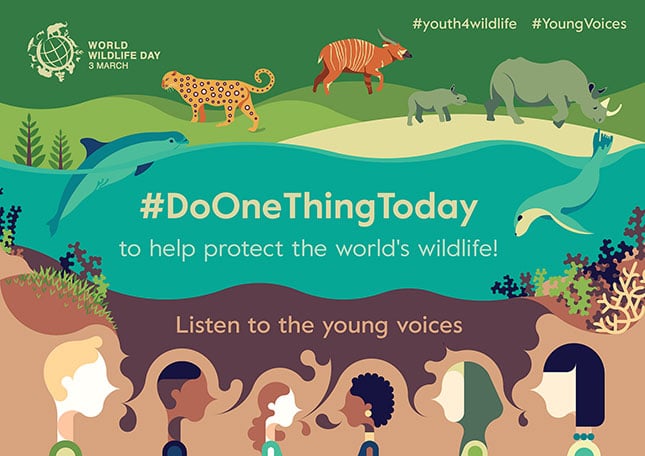
On 20 December 2013, the UN General Assembly proclaimed 3 March, the day when the Convention on International Trade in Endangered Species of Wild Fauna and Flora (CITES) was adopted, World Wildlife Day in an effort to celebrate and raise awareness of the world’s fauna and flora.
The theme for this year’s World Wildlife Day is, “Wildlife crime is serious: let’s get serious about wildlife crime”. This theme was complemented by two sub-themes, including “Wildlife and sustainable tourism” and “The role of local communities in conservation”.
The aim of this year’s themes was to emphasise the positive role that local communities could play in helping curb illegal wildlife trade.
In SA, the loss of the rhino could result in job losses, which would lead to a decline in the living conditions of rural community members, as well as a loss of the country’s natural and cultural heritage.
“SA is home to almost 21 000 white and black rhinoceros, mostly found in the Kruger National Park, [which] represents 93% of the world’s total rhino population. This makes SA the last remaining hope for the world in terms of rhino conservation,” Mketeni said.
“Government has adopted a multi-pronged approach to addressing rhino poaching. This includes the introduction of new, and the amendment of existing, legislation and policies, and greater coordination between departments and law enforcement agencies as a means of combating wildlife crime,” he said during his address.
“Among the most recent initiatives taken [is] the implementation of the integrated strategic management of rhinoceros in SA, [which] is the translocation of rhino from the [Kruger National Park] to safe areas across SA and within the Southern African Development Community,” he said.
He added that other practical steps taken by government included training Environmental Management Inspectors at ports of entry and exit to detect and investigate criminal activities involving the illicit international cross-border movement of endangered species.
Africa Environment Day, which was established by the Organisation of African Unity in 2002 to raise awareness of the pressing environmental challenges facing the continent, was also celebrated on 3 March.











